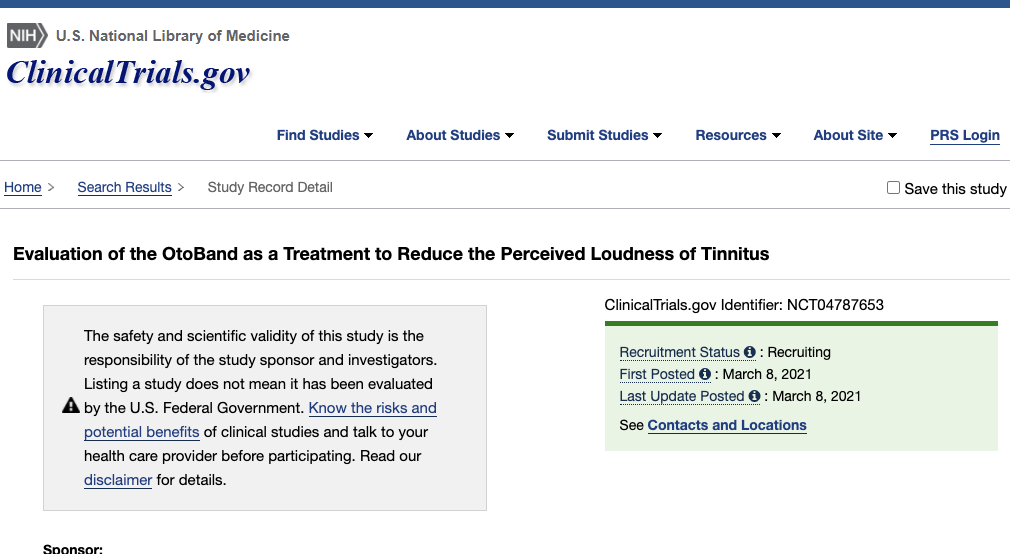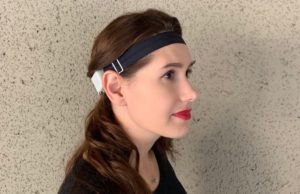A new clinical trial from Otolith Labs, a U.S. Defense Department-backed startup developing a device that could potentially extinguish the debilitating symptoms of vertigo, motion sickness, and now… lower tinnitus volume?

The study, titled Evaluation of the OtoBand as a Treatment to Reduce the Perceived Loudness of Tinnitus (NCT04787653) was posted to ClinicalTrials.gov on March 8, 2021 (a few hours ago, as of this writing).
Placebo-controlled study…
Unlike the Neuromod (Lenire) clinical trials, this OtoBand study involves a placebo device and group. (We here at Tinnitus Treatment Report applaud this decision.)

Here is a brief summary of how the study – which is an at-home study (conducted remotely and does not require travel to/from the clinic) – will work:
This proposed study is a blinded study in which the participant will wear the OtoBand when their tinnitus is present to determine if the OtoBand reduces the perceived loudness of their tinnitus. The Study will be placebo controlled with each participant using an effective device for half of the enrollment period and a placebo device for half of the enrollment period. The order of placebo and effective usage will be randomized, and the researchers will be blinded to which device a participant is using. Study participants will be instructed in an online telehealth conference on how to operate the OtoBand and how to wear the OtoBand. Participants will be enrolled for approximately 30 days from Informed Consent to Wrap-up call.
Great, but what does this “OtoBand device” look like?
Here is a photo from Otolith Labs company website:

We are unsure if this is the *exact* same model of the Otoband device that is being studied for its potential in reducing tinnitus loudness. The above photo might be an earlier version, a prototype. Plus, we do not know what design changes might be made during development. (It is not uncommon to see the design of novel devices like this evolve over time.)
As for the effectiveness of the device… we do not know anything yet. That’s what this clinical trial will hopefully tell us, in time…

Otoband clinical trial results… available when?
Not sure yet. The study was literally only added to the ClinicalTrials.gov database today. Too early to even guess. But here’s a good way to stay current with what’s happening:
For updates on the progress of OtoBand, I invite you to sign up for the Tinnitus Treatment Report email newsletter. It’s an easy way to get the very latest in tinnitus treatment development news and updates. For devices such as OtoBand, as well as pharmacological updates (e.g., FX-322, OTO-313, CS0022, and more). The email updates are 100% free and – importantly – your information is never shared with third parties, and you an unsubscribe with one click. Simple.
The first issue will begin sending soon (perhaps an exclusive update related to FX-322’s upcoming tinnitus study results)…
Got feedback? Send an email to michael@urgentresearch.com and speak your mind. Request an update!